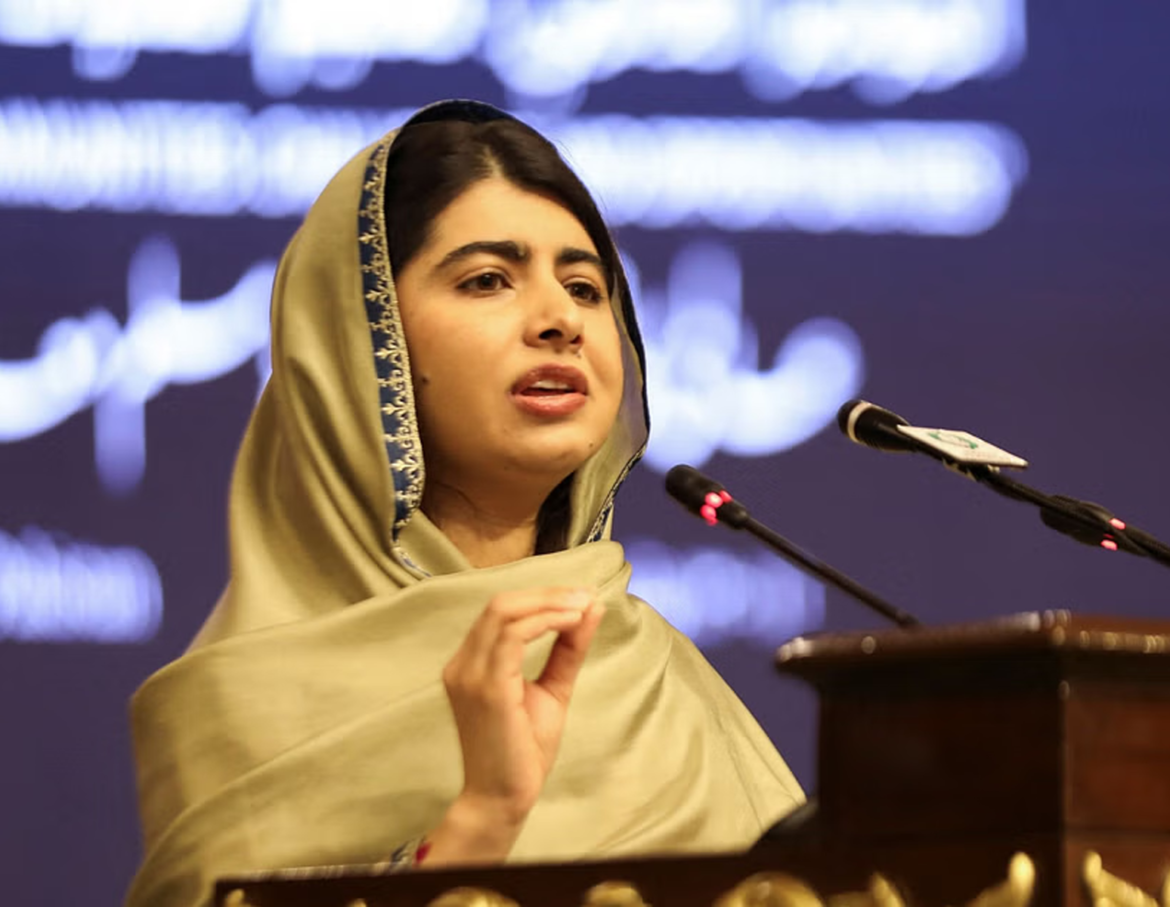Islamabad – Nobel Peace Prize laureate Malala Yousafzai on Sunday strongly condemned the Taliban’s treatment of women, accusing the regime of creating a system of “gender apartheid” under the guise of cultural and religious justification. Speaking at a high-profile summit on girls’ education in Muslim-majority nations, Yousafzai called for urgent international action to address the plight of Afghan women and girls.
Since regaining power in Afghanistan in 2021, the Taliban has enforced harsh restrictions on women, barring them from secondary and university education, most government jobs, and public life. These policies have drawn widespread criticism, including from the United Nations, which has labeled the situation a “gender apartheid.”
“The Taliban punish women and girls who dare to break their obscure laws by beating them up, detaining them, and harming them,” said Yousafzai, now 27. “Simply put, the Taliban do not see women as human beings. They cloak their crimes in cultural and religious justification.”
A Call for Action from Muslim Leaders
The summit, backed by the Muslim World League, convened ministers and education officials from across the Islamic world. However, no representatives from the Taliban government were present despite being invited, Pakistan’s Education Minister Khalid Maqbool Siddiqui confirmed.
Yousafzai urged Muslim leaders to take a firm stance against the Taliban’s policies. “Nothing about these actions is Islamic,” she said. “They are violations of human rights, and no cultural or religious excuse can justify them.”
She also called for recognition of the Taliban as “perpetrators of gender apartheid” and urged leaders to support the Crime Against Humanity treaty, pushing their governments to take action.
“It is time we have real tools to prevent an extremist regime from systematically erasing women and girls,” she emphasized. “The path forward for Afghanistan lies in political solutions instead of military force.”
A Crisis Beyond Afghanistan
Yousafzai also highlighted the broader challenges facing girls’ education in the Muslim world, pointing out that 12 million girls in Pakistan alone remain out of school. Globally, over 120 million girls are deprived of education, holding back economies by hundreds of billions in lost growth.
“As Muslim leaders, now is the time to raise your voices, use your power. You can show true leadership. You can show true Islam,” she appealed.
She added, “If we do not tackle this crisis […] we will fail to live up to Islam’s fundamental values of seeking knowledge.”
A Life Dedicated to Advocacy
Malala Yousafzai has been a tireless advocate for girls’ education since surviving an assassination attempt by the Pakistani Taliban at age 15. Awarded the Nobel Peace Prize in 2014, she has continued to champion the cause globally, becoming a symbol of resilience and hope.
Her remarks come amid international divisions on how to address the Taliban regime. While some nations advocate for diplomatic isolation, others call for engagement to coax policy changes. No country has officially recognized the Taliban government, though some regional powers have initiated dialogue on trade and security issues.
Yousafzai closed her speech with a powerful reminder: “While we celebrate our rich [Islamic] history, we must also turn our attention to the present and the urgent crisis of millions of girls who cannot go to school. In Afghanistan, an entire generation of girls is being robbed of their future.”
The summit served as a rallying cry for immediate and coordinated action to uphold education as a fundamental right for every girl, regardless of geography or circumstance.



